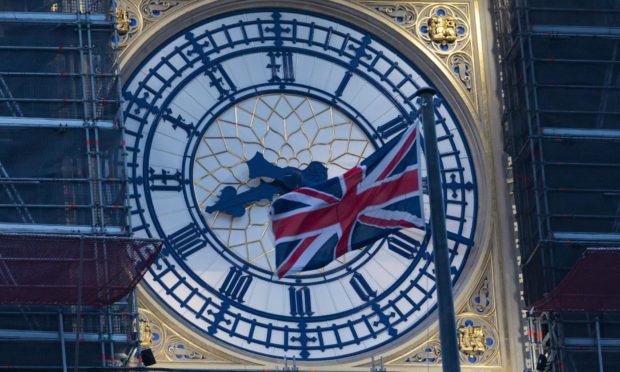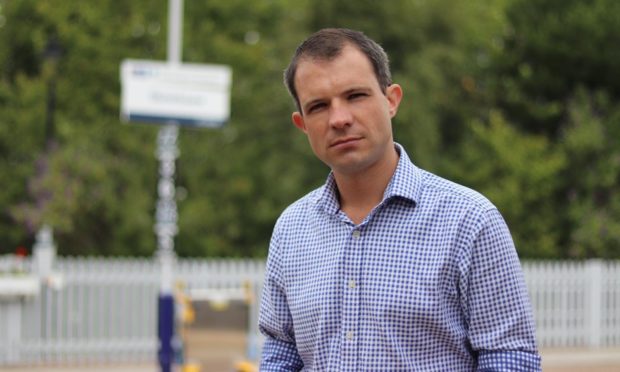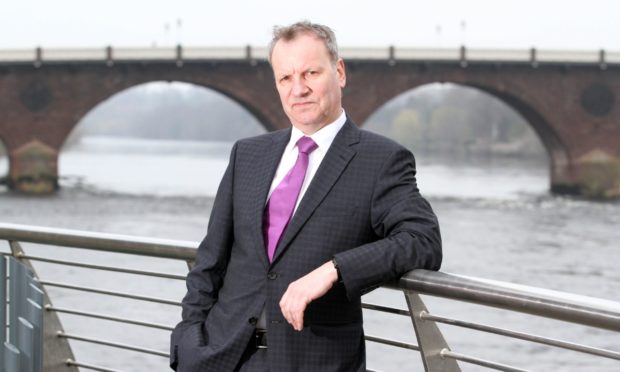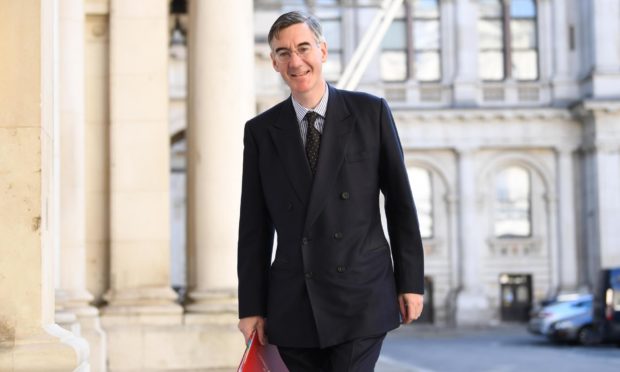A procedure allowing for English Votes for English Laws (Evel) described as “boneheaded” by Tories and rubbished by the SNP has been repealed.
MPs voted on Tuesday night to remove the veto, which had drawn sharp criticism from across the House of Commons since it was enacted under David Cameron’s government in 2015.
Brought about to address the “West Lothian Question” — in which English MPs could not vote on matters devolved to other parts of the UK, but Scottish, Welsh and Northern Ireland MPs could vote in Westminster on England-only matters — critics said it undermined the authority and sovereignty of the Westminster parliament.
Those opposed to its appeal however argued it was the only type of devolution offered to England in the “lop-sided” post-devolution era.
It means now all MPs in the House of Commons have equal powers. The SNP said they would continue to decide whether they would participate in actions they deemed “English”.
“Boneheaded and damaging”
West Aberdeenshire and Kincardine Conservative MP Andrew Bowie was highly critical of Evel, saying it damaged the equality of members across the House of Commons.
He said: “In my opinion English Votes for English Laws is the most ill-conceived, boneheaded and damaging measure ever passed by any government in modern times…possibly a close second to the Fixed Term Parliaments Act.
“Devolution is often described as something that is new…but devolution has existed in the modern UK for more years than it has not.
“Northern Ireland had a devolved parliament from 1922-1972 and in that time no steps were taken by Northern Irish MPs of their rights to vote on areas that were seen to be devolved, even when those MPs deprived Labour of a working majority.
“In the words of the then-Conservative shadow home secretary Peter Thorneycroft, every member of the House of Commons is equal to every other member of this House of Commons.
“I have heard the heartfelt arguments that the actions are appeasing separatists…but in this sovereign parliament of the UK of which we are privileged to serve, we representatives drawn from across the UK are equal and should be entitled to vote on every piece of legislation.
“As a Scot and a unionist, I found it quite frankly offensive to find I could not vote on bills for education and health, for example. As a unionist, I care just as much about the health, education and welfare for the people of Aldershot as I do about people in Aberdeen.”
He added: “Let us have more devolution in England. It exists already. But let us not divide any further down national lines.
“We are a proud unionist party and in repealing Evel tonight, we demonstrate that to the whole of the UK.”
“Utter humiliation”
Perth and North Perthshire MP Pete Wishart, opening the debate for the SNP, claimed former Prime Minister David Cameron had opened a “quasi English parliament” in Westminster
He said: “What an utter humiliation this is for this government.
“A flagship policy of the 2015 manifesto will soon be nothing more than a footnote in constitutional history books and remembered as just another Tory policy disaster.
“Evel was just about the worst solution to a problem which did not even exist.
“Never before has a procedure been introduced to this House which distinguished the members into two distinct classes.
“Not only did it do that, it did it by nationality and geography.
“A quasi-English parliament squatting here…an absolute and utter disgrace.”
Less equal
Lib Dem MP for North East Fife, Wendy Chamberlain, said: “As I sat on September 19 2014 watching then Prime Minister David Cameron snatch defeat from the jaws of victory by pivoting immediately to a plan to introduce Evel without acknowledging the need to properly reflect on how the UK had evolved and developed in advance of its parliamentary systems, it was easy to see this was the wrong approach.
“Telling Scots, regardless of their vote in the independence referendum, that the first steps of their Prime Minister was to prevent their representatives in this place from participating fully.
“Telling those in the other devolved nations that their voices would also be muted.
“And giving the SNP and others an ongoing grievance publicity point at every vote.
“It’s important to remember that when we talk about a four nations approach, as we do often in this place – for me in all seriousness, for others perhaps less so, we are talking about Scotland, Wales, Northern Ireland and the UK.
“Now it is right those in England query how their views are best represented and the increased prominence of regional mayors during the pandemic perhaps suggests that the English are finally waking up to the democratic deficit they experience. But creating a two-tier system in this place where MPs held a mandate at 6pm and had it withdrawn at the next vote at 8pm was never the answer.
“It certainly doesn’t sound like all votes or constituents counting equally.”
Strength of the union
Evel was introduced in 2015 as a new stage for laws passing through Parliament.
It allowed English, or English and Welsh, MPs to accept or veto legislation only affecting their constituents before it passed to third reading, its final Commons stage.
But the Government faced claims at the time from Labour that it was trying to “manufacture” a larger majority by using “procedural trickery”, while the SNP also vehemently opposed the system.
Closing the debate, Jacob Rees Mogg said devolution was “lop-sided” and had too many “variations made to it in recent decades” causing the constitution of the UK to become “unsettled”.
But he said he was confident removing the measures would not help the SNP, but improve the strength of the UK.
He added: “I do not agree it is an attempt to appease Scottish nationalists by removing Evel, it shows we have confidence in our union parliament.”




